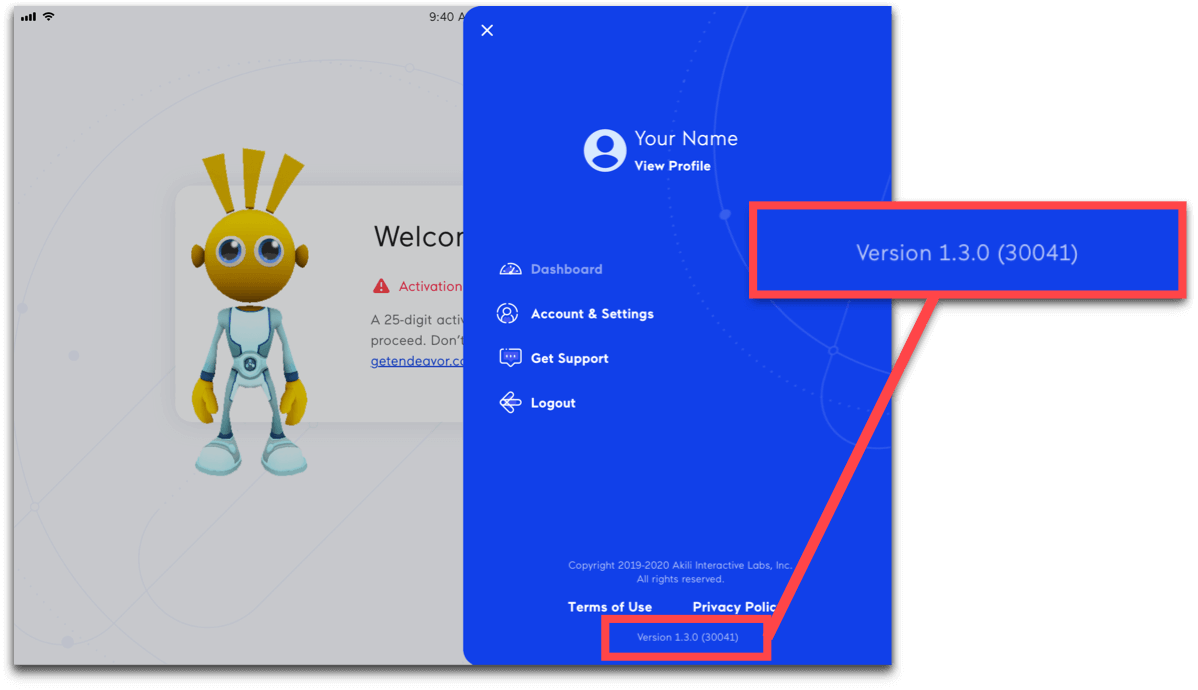
Ready to create your own universe?
Beyond improving attention function, EndeavorRx was designed to capture your child’s imagination. They’ll get to explore a wild galaxy filled with cool creatures, unlocking costumes for their character, conquering different worlds, and building their very own space farm!
Let’s unlock your own superpower
Remind your child: the more effort you put in, the more likely you’ll see improvements in your attention – as proven by our research studies featuring 600+ kids who tried EndeavorRx.
Learn more about The Research

Take it one day at a time
EndeavorRx is typically prescribed as a daily treatment played 5 days a week for about 25 minutes each session. But unlike most video games, the amount of time you’re able to play is limited to a certain “dose” for each session – which comes to an end once you’ve reached your daily goal. Think of each day as its own mini mission!
Want to play a demo before getting a prescription?
Click below to download for free and try navigating your character through the icy land of Planet Frigidus – steering and aiming for targets while avoiding treacherous terrain!
Please note: this demo is only meant to preview gameplay, and does not contain any therapeutic benefits.
EndeavorRx:
Indications, Safety and Cautions
Indications:
EndeavorRx is a digital therapeutic indicated to improve attention function as measured by computer-based testing in children ages 8-17 years old with primarily inattentive or combined-type ADHD, who have a demonstrated attention issue. Patients who engage with EndeavorRx demonstrate improvements in a digitally assessed measure, Test of Variables of Attention (TOVA®), of sustained and selective attention and may not display benefits in typical behavioral symptoms, such as hyperactivity. EndeavorRx should be considered for use as part of a therapeutic program that may include clinician-directed therapy, medication, and/or educational programs, which further address symptoms of the disorder.
Safety:
No serious adverse events were reported. Of 342 participants who received AKL-T01 in the two clinical trials supporting EndeavorRx authorization for age ranges 8-17, 17 participants (4.97%) experienced treatment-related adverse events (TE-ADE) (possible, probable, likely). TE-ADEs reported at greater than 1% across the studies include: frustration tolerance decreased (2.34%) and headache (1.17%). Other adverse events occurred less than 1% and included dizziness, emotional disorder, nausea, and aggression. All adverse events were transient and no events led to device discontinuation. Across other studies in children and adolescents with ADHD, rates of adverse events were similarly low (<10%) and no Serious Adverse Events have been reported. All reported adverse events across all clinical trials resolved at the end of treatment. Users should consider the totality of evidence presented along with their health care provider when considering incorporating AKL-T01 into their treatment plan.
Cautions:
Rx only: Federal law restricts this device to sale by or on the order of a licensed health care provider. EndeavorRx should only be used by the patient for whom the prescription was written. For medical questions, please contact your child’s healthcare provider. If you are experiencing a medical emergency, please dial 911. EndeavorRx is not intended to be used as a stand-alone therapeutic and is not a substitution for your child’s medication.
If your child experiences frustration, emotional reaction, dizziness, nausea, headache, eye-strain, or joint pain while playing EndeavorRx pause the treatment. If the problem persists contact your child’s healthcare provider. If your child experiences a seizure stop the treatment and contact your child’s healthcare provider.
EndeavorRx may not be appropriate for patients with photo-sensitive epilepsy, color blindness, or physical limitations that restrict use of a mobile device; parents should consult with their child’s healthcare provider.
Please follow all of your mobile device manufacturer’s instructions for the safe operation of your mobile device. For example, this may include appropriate volume settings, proper battery charging, not operating the device if damaged, and proper device disposal. Contact your mobile device manufacturer for any questions or concerns that pertain to your device.













